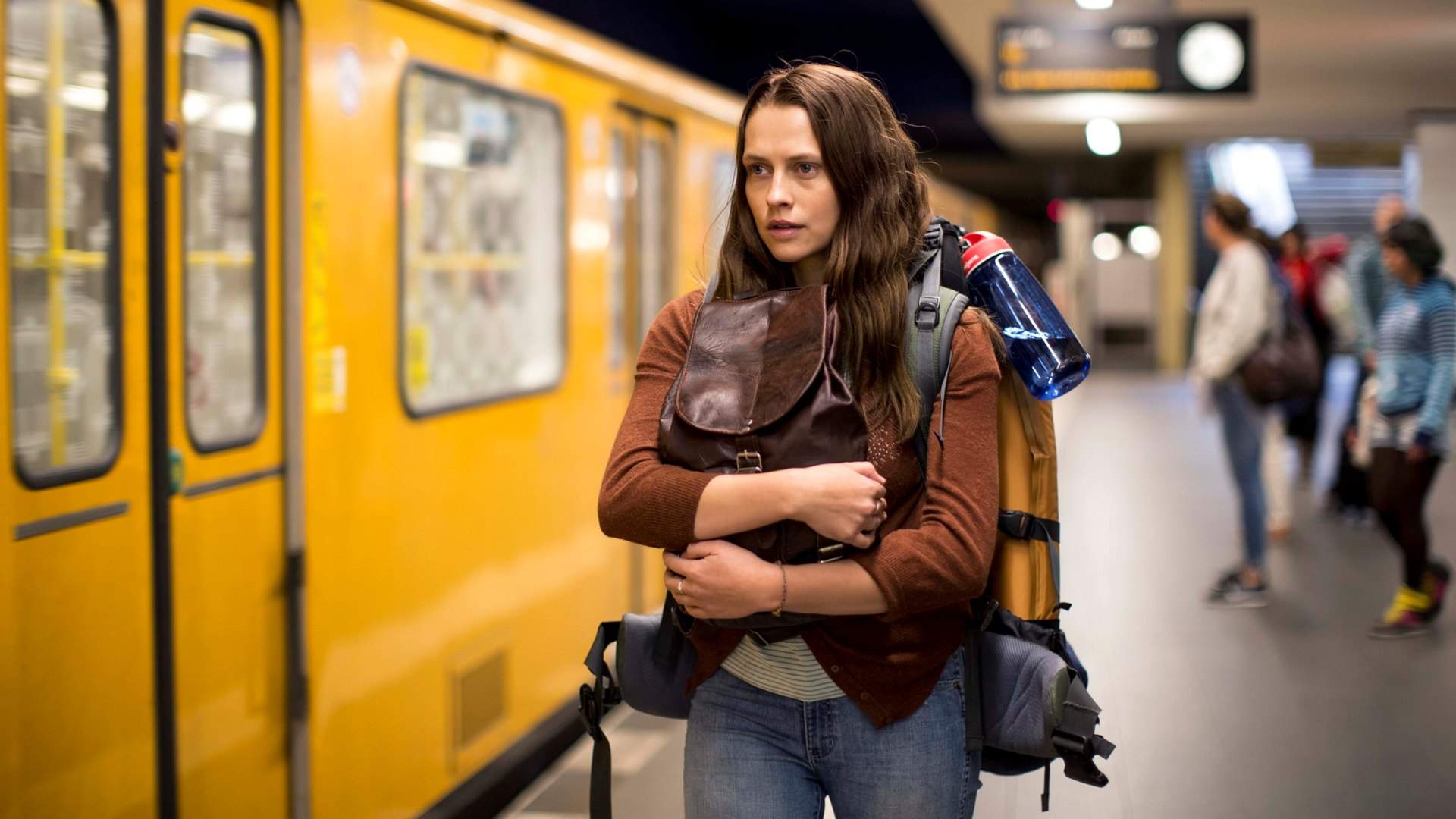Berlin Syndrome
This intense psychological thriller will make you want to burn your passport.
Overview
Current world events don't make the prospect of international travel seem particularly appealing at the moment. The truth is though, cinema has been taunting travellers for decades. Whatever holiday you might have planned, there's a horror movie just waiting to convince you otherwise. Heading to a cabin for a quiet weekend? The Evil Dead and The Cabin in the Woods have news for you. Venturing across the Australian outback? That's where Wolf Creek comes in. Seeking out a gorgeous beach? Whatever you do, don't watch The Shallows. Stopping at a roadside hotel? Didn't turn out so well in Psycho. Bound for Europe? Hostel made a whole trilogy about what you can expect.
With a name that combines Germany's largest city with the connection that can arise between hostages and their captors, Berlin Syndrome initially appears to traverse similar terrain as the movies mentioned above. Indeed, the film starts with Brisbanite Clare (Teresa Palmer) arriving abroad, chatting to fellow backpackers and wandering the streets. An aspiring photographer, she snaps everything from famous buildings to everyday folks along the way. Then she meets Andi (Max Riemelt), a German schoolteacher who opens with a line about strawberries, takes her for a scenic walk, and intrigues Claire enough that she changes her plans to jump to her next destination. They have a fun night out together, go back to his apartment, and...things go south from there.
It should all sound familiar, of course. That's Berlin Syndrome's aim, for two reasons. Based on the book of the same name, directed by Australian filmmaker Cate Shortland (Somersault), and adapted by screenwriter Shaun Grant (Jasper Jones, Snowtown), the film's entire premise relies on several elements that many movies have already covered — a dream vacation gone bad, and a romantic spark that turns sinister. But the movie also takes scenarios that have been done to death and thrusts them into unexpected territory.
It's not a spoiler to say that Clare awakes the next morning to find that she's locked in Andi's flat, and that he's removed the SIM card from her phone. Nor does it give the game away to reveal that he has trapped her on purpose. After spending its setup revelling in the excitement and openness of travel, Berlin Syndrome dedicates most of its running time to the opposite extreme with an expert command of tension. At the same time, the film unpacks Clare's complicated response, as she seesaws between fighting back and slowly settling into a twisted version of domesticity.
Behind the camera, Shortland crafts a film of juxtapositions, both in terms of tone, and in the sites of Andi's apartment versus the city outside. But there's no one better at getting to the heart of the film's internal conflict than Palmer. The Aussie actress has had a huge year or so, popping up in everything from the bad Point Break remake to the locally made war flick Hacksaw Ridge. But she's in career-best form here as she conveys Clare's inner turmoil. Likewise, it takes considerable skill for Riemelt to make Andi more than a straightforward villain. Welcome to Berlin Syndrome, a murky, confronting trip.
Deep dive into Berlin Syndrome's core themes and read our feature examining how modern filmmakers like Cate Shortland are tackling complex issues of psychological manipulation.







